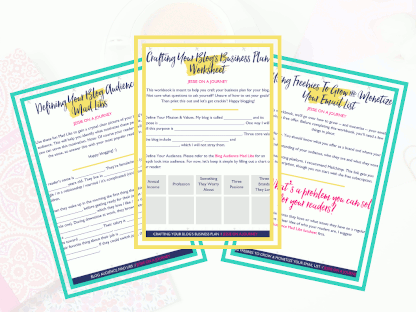Tips For Interacting With Locals Abroad

Cuy (guinea pig) via J. Miers.
Remember You’re A Foreigner
When traveling, it’s important to remember you’re a guest in another country. This means when people can’t understand what you’re saying or a waiter brings you the wrong order you need to take a deep breath and appreciate that you’re in a different culture. You’re there to learn about them, not to have them cater to you. Also, keep in mind that mix ups and bumps in the road often lead to memorable adventures and great stories. While in Vienna, I was actually with a girl who shouted at our waitress – who spoke German – for bringing the wrong salad. She actually had the nerve to turn to me and ask, “Why can’t she speak English?” Because we’re in Vienna! It was mortifying for me, mortifying for the waitress and should have been mortifying for this nasty tourist as well. The correct reaction would have been to either to politely try to explain to the waitress – with hand gestures and pointing to the menu, if necessary – that she brought the wrong entree. Or, just eat the salad. Sometimes, receiving the wrong order in an eatery adds some adventure to the trip, anyway.Be Patient And Speak Slowly
When trying to have an interaction with a local be patient and give them time to formulate an answer. Additionally, if someone doesn’t understand you resist the urge to speak louder and instead speak slower.
Notebook and pen via teyoo
Carry A Pen And Paper
This is something you should always have on you. Many times, words get lost in translation due to accents and pronunciation. If you find yourself in this situation write down what you’re trying to say instead. This is especially helpful when asking for directions, as you can simply write down the name of your starting point with an arrow to your destination and make a shrugging gesture.Start Small
If you want to have a conversation with a local but are nervous about your accent, language skills or making the first move, try starting small. Ask someone how their day is or where you can find a bathroom and work your way up from there until you’re comfortable having a full conversation.Use It As An Excuse To Improve Language Skills
When trying to learn a language, nothing compares to having a real interaction. The words and lessons you learn in books get put into practice and will help you learn to speak and think in Spanish. On a recent trip through South America, I had a lot of trouble making steady conversation with locals, not because I didn’t know Spanish, but because of my New York accent. However, having locals correct me was a great way for me to perfect my Spanish as well as add some new phrases to my vocabulary.
Middle East traditional meal via alexbruda.
Research The Culture
Research the culture beforehand to learn what are acceptable and unacceptable topics of conversation. This will help you avoid any uncomfortable situations when talking to locals. Moreover, it can put you on the path to making friends and maybe even getting invited for an outing with locals.Teach Locals About Yourself, Too
Not only should you be trying to lean about the local culture and community, but also teaching them about yourself. Locals are often interested in your hometown just as much as you are in theirs. Bring photos of family and friends, special personal items and even small tokens to hand out like local candies from home.Appreciate The Cultural Differences
If your words get lost in translation or a local says something you would usually deem as rude resist the urge to get offended and instead appreciate the cultural differences of the situation. Remember, with every interaction you’re given a bit more cultural knowledge of a place.Think Of The Possibilities
Whenever you feel nervous about going up to a local and starting a conversation think of the possibilities. If you don’t have the interaction you’ll be wishing you did. And if you do, the worst that can happen is you end up getting ignored. That being said, you could end up having a great conversation, enhancing your language skills and maybe even getting invited out to a local bar or restaurant with people who actually live in the city you’re visiting.
Hi, I’m Jessie on a journey!
I'm a conscious solo traveler on a mission to take you beyond the guidebook to inspire you to live your best life through travel. Come join me!

Want to live your best life through travel?
Subscribe for FREE access to my library of fun blogging worksheets and learn how to get paid to travel more!



Great tips! I think learning a little of the language is key. It seems to make a difference to most people if you at least attempt to learn their language, as opposed to relying on them to speak English. Even if you’re not right all the time, they usually still appreciate that you tried.
@Jessica- Agreed! Once you get over your fear of being wrong or sounding silly and just make an attempt you can only improve from there.
Thank you for you nice tips, it was helpful to enjoy read your article (:
@Siraj- I’m glad you enjoyed it! 🙂
Love these tips! I have learned that when being abroad, first and foremost you can’t expect everyone to know English. That’s been the biggest nono I’ve witnessed in all my travels. I can relate to all of these and I had to learn to see it as a opportunity to practice language skills (as opposed to an opportunity to embarrass myself haha) thanks so much for sharing!
@Samantha- Thanks so much for the feedback. And yes, it’s always frustrating to me when travelers expect everyone else to speak their language. It’s like they immediately forget they’re the traveler!
One of the most interesting event in a trip is “making friends”from different countries and cultures.
Can,t find a friend unless you appreciate their feelings and respect their beliefs.
@Jalal: Very true!